It’s Going Down recently had the chance to talk over the phone with Fredy García Ramírez, an Indigenous Zapotec community organizer and political prisoner, locked up in Tanivet, Oaxaca. During our conversation, we discussed Indigenous organizing in Oaxaca, the history and work of the Committee in Defense of Indigenous Rights (CODEDI), capitalist megaprojects, and state repression. We also talk about Fredy’s legal situation, the conditions inside the Tanivet prison, prison organizing, and prisoner solidarity. Below we publish the audio interview in Spanish, accompanied by the written transcription of the interview in both English and Spanish.
IGD: Good morning, compa. To get started, do you want to introduce yourself to those who are listening to this program?
Yes, my name is Fredy García Ramírez. I am a member of the organization Committee in Defense of Indigenous Rights CODEDI, imprisoned in the Men’s CERESO in Tanivet, Oaxaca.
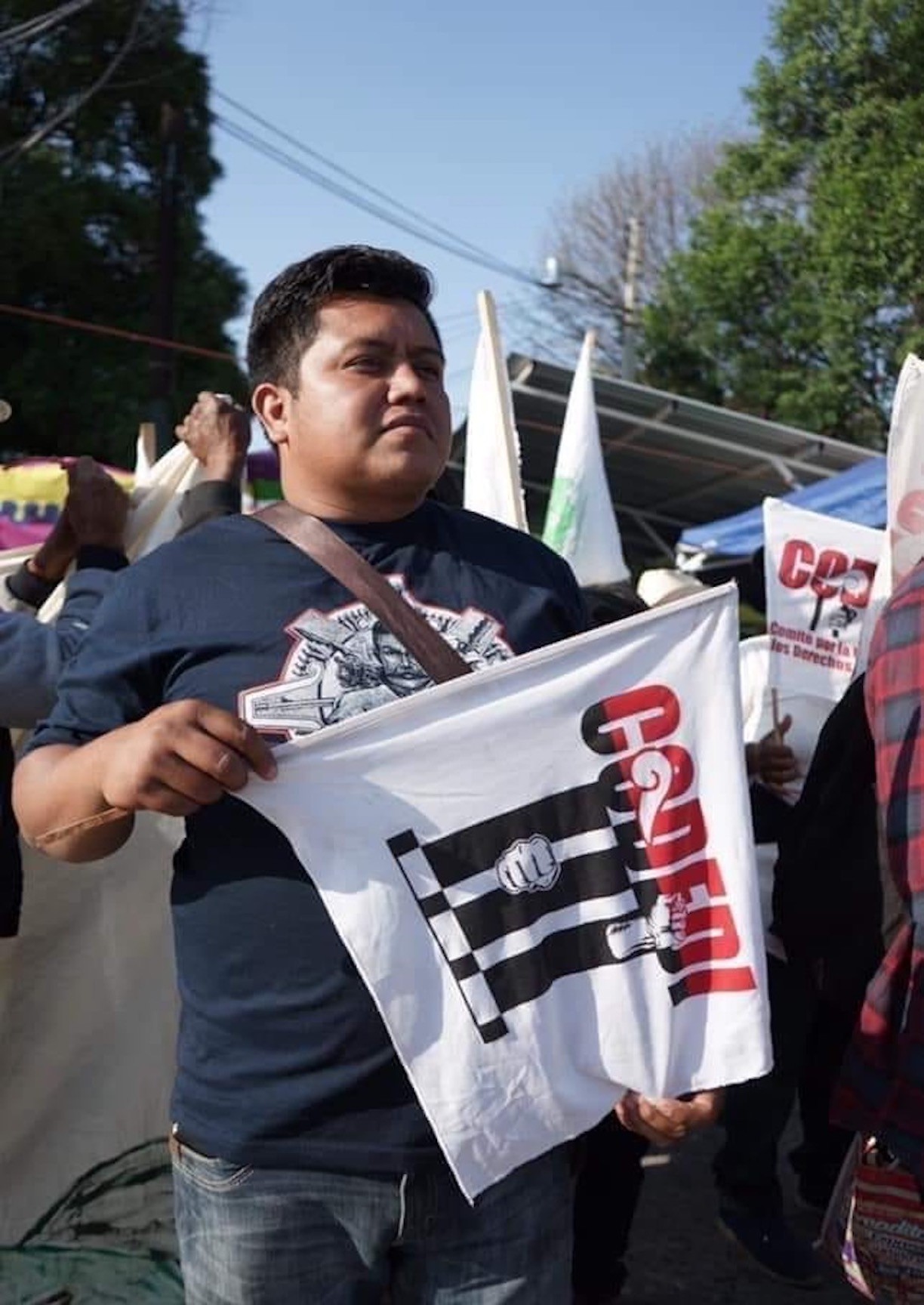
IGD: Could you talk with us a little bit about the history of the Committee in Defense of Indigenous Rights (CODEDI), the organization to which you belong. Where and how did the organization come about? In how many communities are you all working? How do the communities organize between themselves? What objectives does the organization have for the participating communities?
The organization CODEDI was born in 1998 in the municipality of Santiago Xanica in the Sierra Sur of Oaxaca. At that time, I was not part of the organization. The organization came about in order to defend the usos y costumbres (customs and traditions) of the community. As you all know, there have been many post-electoral conflicts in Santiago Xanica, and the state government has always sought to impose certain authorities in the municipality because of the many interests involved. As such, the organization was born to defend the usos y costumbres (customs and traditions) of the community. Since then, it has worked to defend the rights of Indigenous peoples, and has struggled for territorial defense. In this way, the organization was born locally. Since then, it has expanded to other neighboring communities who face similar problems, and who like the work that we do. These communities have called on the organization for support, and in this way, the organization has expanded to other communities. Currently there are around 45 communities in seven municipalities of Oaxaca. In the Sierra Sur, Coast, Central Valleys, and the Isthmus. Those are the four regions we have been working in.
One activity that has always motivated our work is food sovereignty. It is one of the principal projects we carry out, so that our compañeros can produce the products that they consume. It is something that our ancestors already did, but unfortunately the system has converted us into consumers. On one hand, because there is no government support in helping the communities plant their own territories. On the other hand, those who do, do so in an uncontrolled manner, using chemical fertilizers and pesticides. As an organization, we have always instilled in our compañeros, including educating the youth (further along I will talk about the Centro de Capacitación) that we must produce in a healthy way, using compost, manures, organic fertilizers. Planting organic seeds. Combating pests without chemicals. In many places, the government has sought to introduce genetically modified products, something we have always been against. Thus, we have worked with our compañeros, teaching them about the consequences of consuming chemical products ourselves, along with the consequences for nature, for our mother earth.
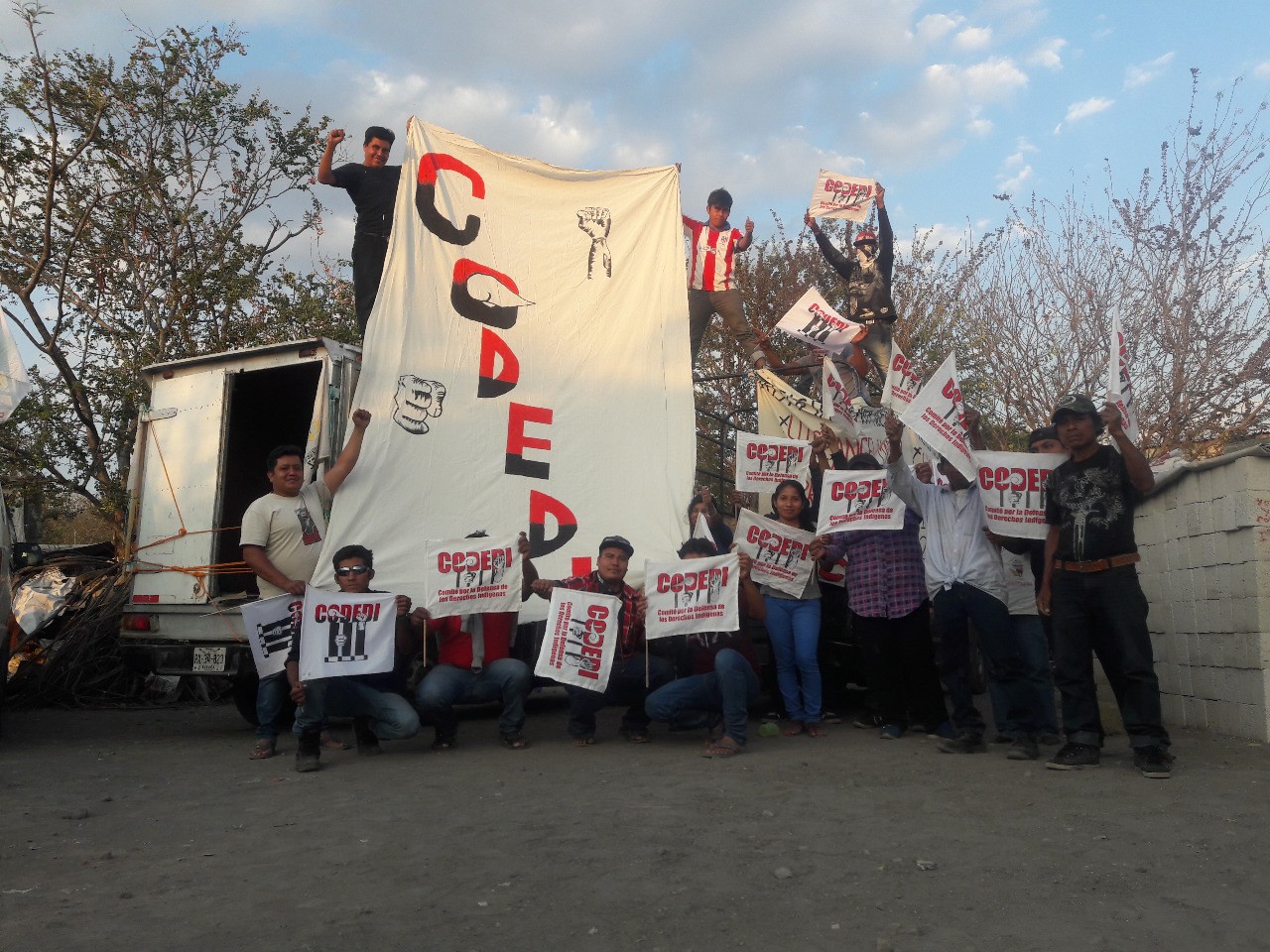
IGD: Could you talk to us about the Centro de Capacitación Ex-Finca Alemania. How did the project begin in the Sierra Sur? What relation does the ex-finca have with the communities that participate in the organization CODEDI?
This project was born many years ago, when the compañero Abraham Ramírez Vázquez was released from prison. He was unjustly imprisoned for six years. Once he left prison, he invited other communities to get organized. That is when I started participating. He was always talking about having a space to educate the communities, having a space to carry out activities and workshops. One of the principal objectives was to have a University of the Sierra Sur, as we call it, to give the youth an opportunity to continue studying. In reality, in our communities there are many young people who are interested in continuing to study, to educate themselves, but there is no opportunity for them to do so. Oftentimes their parents have few resources, or there isn’t a school nearby. In this way, we thought of the idea to have a space to give the youth that opportunity.
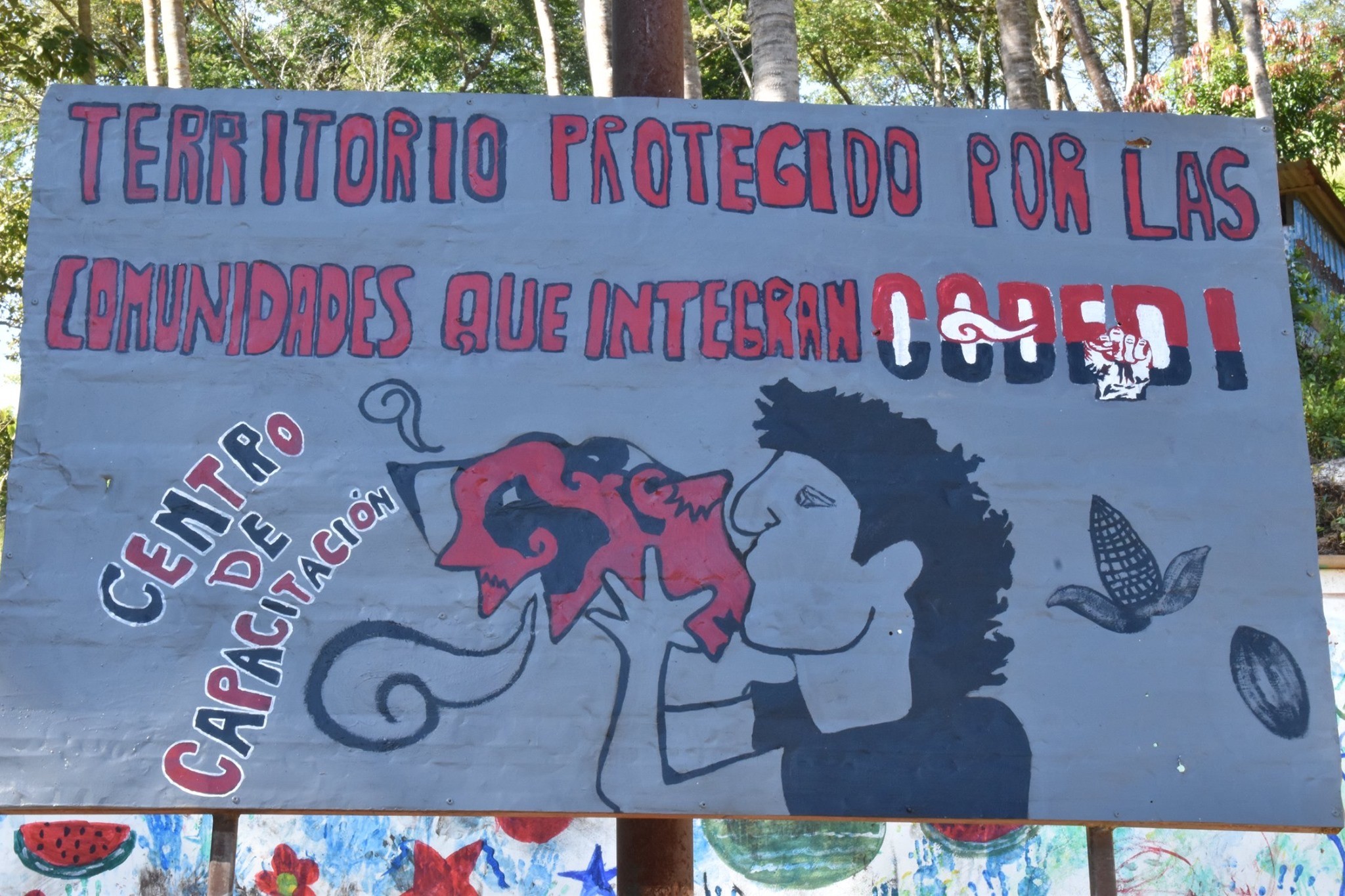
On April 19, 2013, the recuperation of the territory previously called the Finca Alemania began. It was recuperated with the support of all of the communities which in that moment belonged to the organization CODEDI.
It was 2015 when we began the organize the Centro de Capacitación with the support of all of the compañeros. We began to create workshops and classes for the youth. The university level was the principal objective, but we began with four education levels: kindergarten, elementary, middle school, and high school.
We started carpentry, metal, bakery, silkscreen printing, sewing, and traditional medicine workshops.

We did this with the support of all of the compañeros. We also invited all the young people so that they can educate themselves. It was totally free. We supported them with food, lodging, medical attention, school supplies. It did not cost them anything. That was our main objective.
We were carrying out productive projects. That was the idea, to create productive projects, that we could then share with the communities of the organization.
The state has always had productive projects, but there are always many rules involved. There are many people who have a project in mind, but when it comes time to apply for the project, they face many obstacles. They have to constantly submit the requested documentation and in reality, they spend more than the projects offer them. Thus, we began our own projects in the Centro de Capacitación CODEDI, as we now call it.
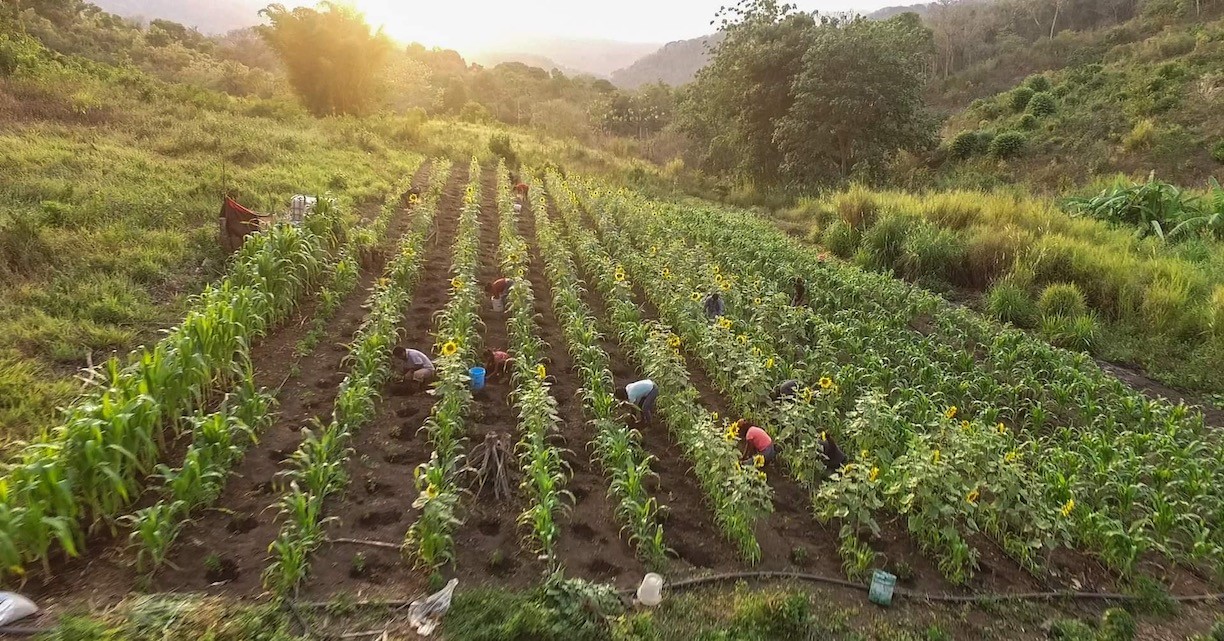
We started raising pigs, chickens, and cattle. We’ve already delivered various numbers of these animals to the communities. In this way, we have been expanding the different productive projects of the Centro de Capacitación.
All of the work has been done as a result of the communities. Since the beginning, the communities have always rotated, taking turns to work and grow the Centro de Capacitación.
Everything we do is carried out through assembly. All of the decisions that are taken in the organization have always been made through general assemblies in the communities where the organization has a presence. There is a structure: a president, a secretary, a treasurer, a spokesperson, which helps facilitate decisions. In the communities, we have an assembly every two months, and quarterly assemblies where all of the committees belonging to CODEDI participate, where future projects are proposed, and future work is analyzed. All of the decisions are made in assemblies, where all of the communities belonging to the organization CODEDI are present.
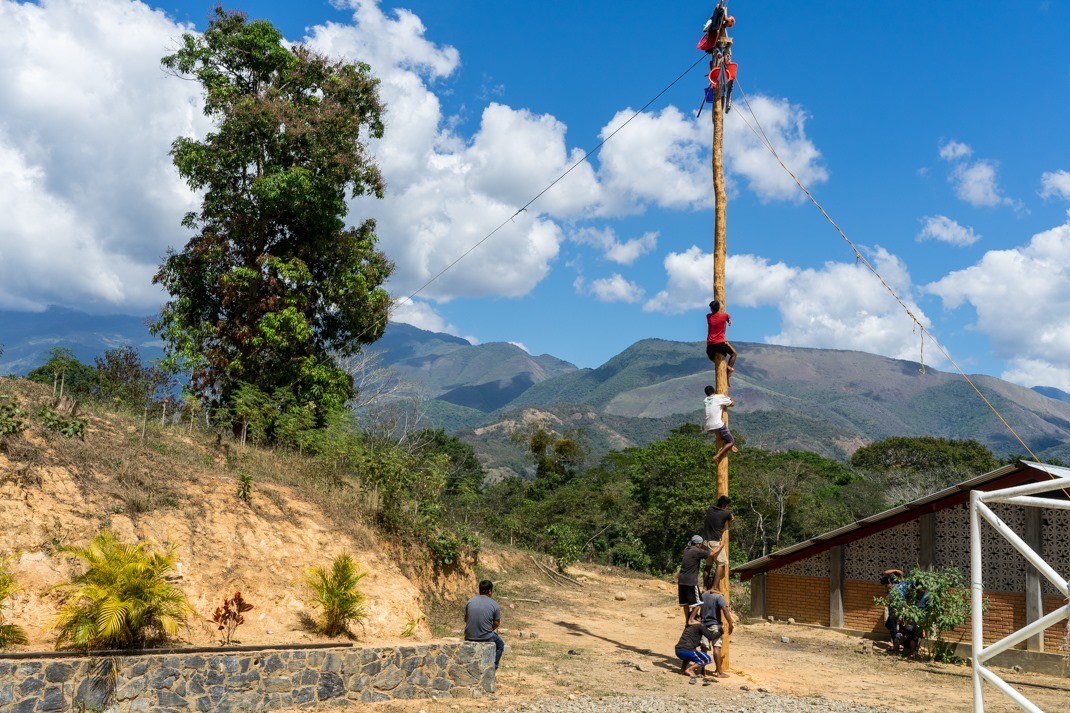
IGD: Could you tell us about the difficulties you all have faced as an organization in defense of Indigenous rights? What forms of repression and attacks have been carried out against you all?
Well, throughout the organization’s history, we have faced many difficulties due to the work we carry out. As we have said in various documentaries, we are like the pebble in the shoe of the state. We know that there are many cacique interests in our regions. We have always opposed mining concessions and the installation of hydroelectric projects, like the one being sought in the Coapita Rivera, just ten minutes from the Centro de Capacitación CODEDI. For this, the government has always seen us as something negative, saying we are criminals, trying to portray us in certain ways.
Because of this, we have had compañeros imprisoned. In 2005, they detained our compañeros Abraham Ramírez Vazquez and Noel and Juventino García Cruz, who were unjustly imprisoned for six years. In 2019, they assassinated various compañeros in an attack whose objective was to eliminate Abraham Ramírez Vásquez. They didn’t succeed, but they did assassinate Alejandro Díaz, Ignacio Ventura, and Luis Ángel Martínez. These three were young people who were educating themselves at the Centro de Capacitación and decided to accompany Abraham Ramirez Vazquez to a meeting in Oaxaca City. Upon their return from the meeting with the state government, they were attacked in the Miahuatlán area. That same year, they assassinated Noel Castillo Aguilar in Barra de la Cruz, and Abraham Hernández, who was a local coordinator of the community of Salchi, in San Pedro Pochutla.
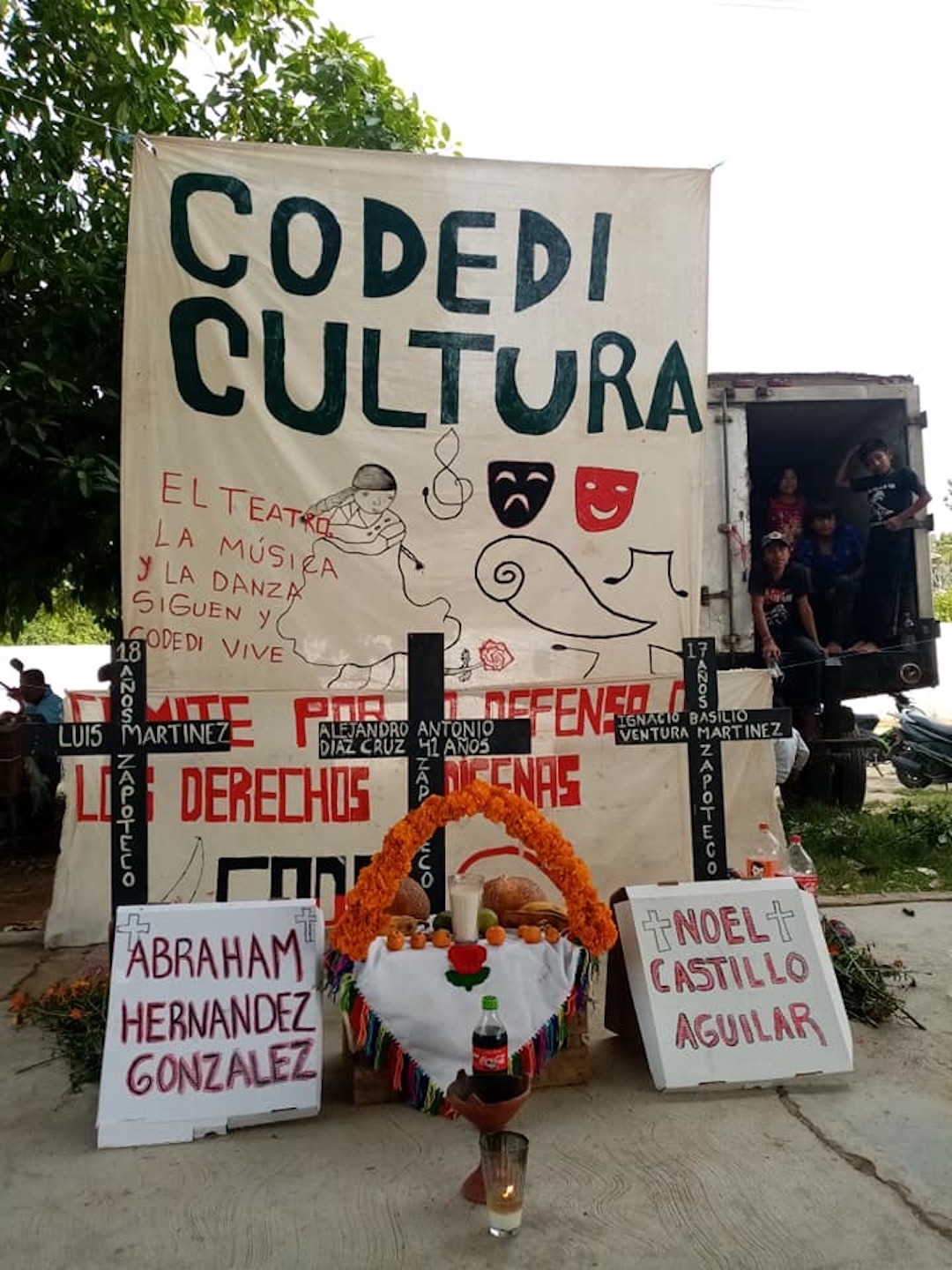
In these two places, Barra de la Cruz and Salchi, there have always been people who have sought to dispossess the communities of their beaches and territories, in order to install transnational projects, like a hotel zone. They asked for support from the organization and we began to denounce and resist the territorial dispossession. For that, they assassinated the two compañeros for defending their beaches, for defending their territories.
Also, throughout our history, there has always been extensive police repression, like harassment against compañeros and death threats. Personally, on various occasions, I have received death threats from unknown people. Another example is what recently took place in Santa María Huatulco, with the harassment and illegal detention of Cristóbal Ramírez. All of the time, we have faced these types of difficulties for the organizing work we have carried out as an organization.
The repression has been a direct result of the work we do and the way in which we organize ourselves and defend our territories. The state has always wanted to terrorize the compañeros, instill fear, plant terror, so that we don’t organize, so that the people are afraid to take to the streets, to shout and protest.
The people have been frightened due to the attacks we experienced in 2018 with the assassination of the compañeros. Many compañeros were frightened, they no longer wanted to go to the Centro de Capacitación, out of fear of being attacked en route. They no longer wanted to take the streets and protest because they were afraid of being attacked in whatever political activity. In the past, we have also been attacked. In 2016, we suffered an attack on a caravan that we organized from Santa María Huatulco to Oaxaca City. There has been too much harassment. That is what the state wants with my arrest. In reality, it is just another attack on our project, on the organization.
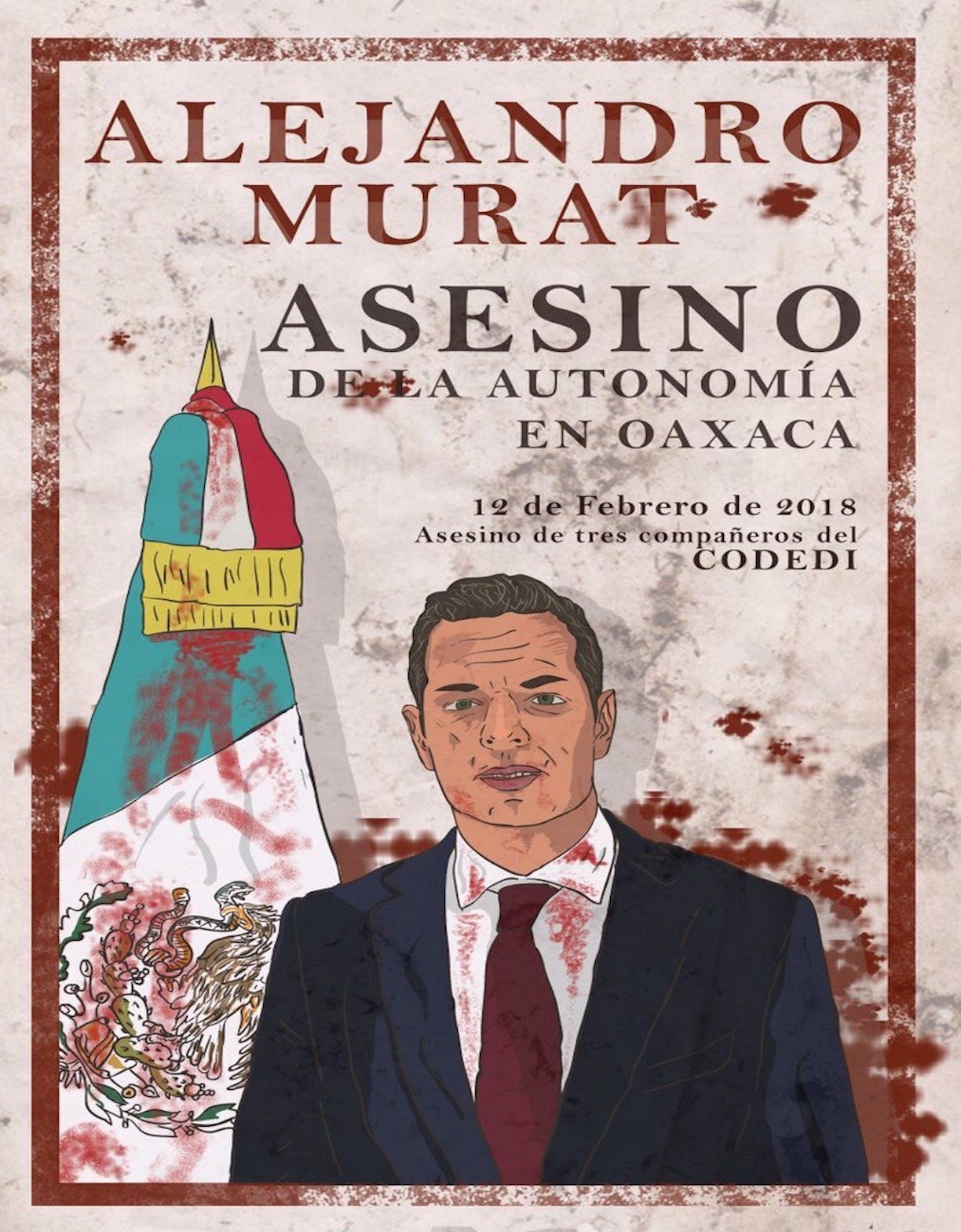
IGD: Moving along to your case as a specific example of repression against the organization, what events led to your arrest? What happened the day of your detention? What crimes are you being accused of?
On November 6, 2019, CODEDI, together with other organizations from Oaxaca, we decided to carry out a protest at the airport in Oaxaca City. The idea was to denounce the lack of responsibility and lack of compliance with the agreements we had reached with the Prosecutor’s Office regarding issues of justice. On one hand, for the compañeros of our organization who have been assassinated, while the crimes remain in impunity with no justice. On the other hand, the other organizations who are in the same situation, with imprisoned compañeros, assassinated compañeros, cases which have not advanced in the judicial process either. The cases remain in impunity. Thus, we went to carry out different activities here in Oaxaca City. To denounce the Prosecutor’s Office which in that moment was not complying with its duty. Rubén Vasconcelos was the head of the Prosecutor’s Office.
Leaving that activity, we held a press conference where we publicly denounced the situation. Afterwards, I was detained by armed men, dressed in civilian clothing. I was arrested and isolated. They arrested me on November 6 at six in the evening and I was brought to the Prosecutor’s Office on November 7, at like five in the morning. I was disappeared for various hours. There was a lot of concern on the part of the compañeros because they didn’t know where I was. They asked at the different branches of the Prosecutor’s Office, without an answer. There was a lot of concern on their part. So, I was arrested, they took me to my first hearing, and officially charged me. I was charged with assault, robbery, and injury.
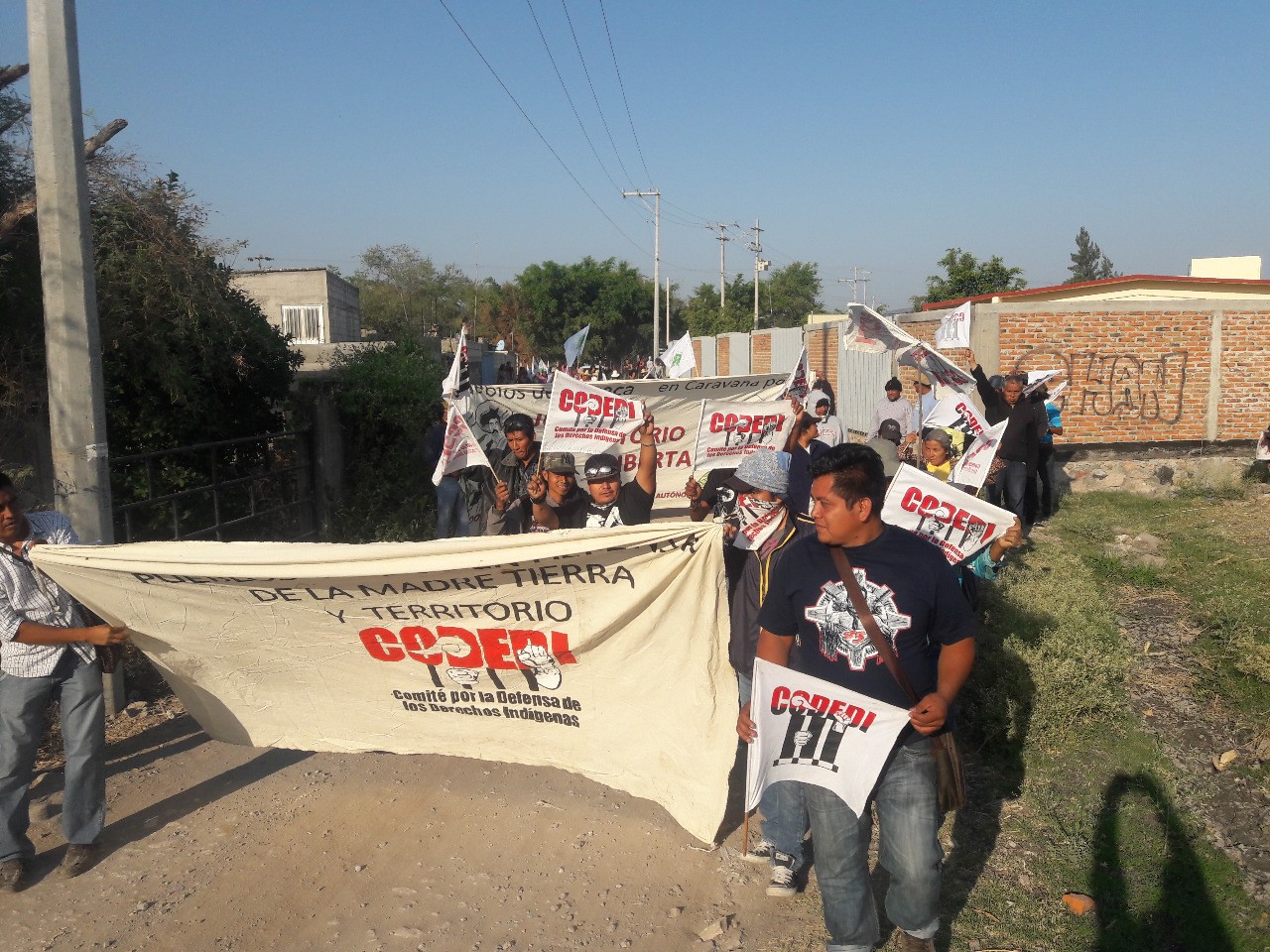
IGD: What is your current legal situation?
My current legal situation, well it has been delayed for far too long. My lawyer has always submitted everything on time and in the proper format, but with the pandemic, they have lengthened the process. In February, we went through the intermediate stage of the process. Now, more than six months have passed without them scheduling a hearing. The legal processes are at a complete standstill with the pandemic. It is always an excuse the courts use, that there is a pandemic and that they can’t transfer the prisoners to their hearings. There is an endless number of excuses. Thus, right now, we are waiting to schedule the oral hearing, as they call it, where they will define what my legal situation is going to be.
IGD: What is everyday life like inside the prison? What is the schedule? How are space and work organized? In what activities, classes, or workshops are you participating? What is the environment like in general inside the prison?
Well, inside the prison, it is always the same activities. They opened this prison in August 2019. It is thus just two years old. Structurally, the spaces are very small, very small and isolating. Between the modules, there is much isolation. It is really stressful to have such little space to live together. There is a small dining area, a sports area, a multipurpose court, but there is very little space. Daily, we have to do roll call, at 7am, another in the afternoon at 1pm, and another 6pm, when they lock us up in our cells. In the past, the activities were very few. But now, we have a schedule of activities. We can work from seven in the morning until nine at night. I normally do various activities to stay mentally healthy because it is very tiring. Sometimes you don’t work and you get bored. You want to think about things that stress you out and you get desperate. What I do is train my mind by weaving. I make bags out of plastic and with that, I occupy my time. In the evening, I read books to occupy my mind and time, in order to survive inside the prison.
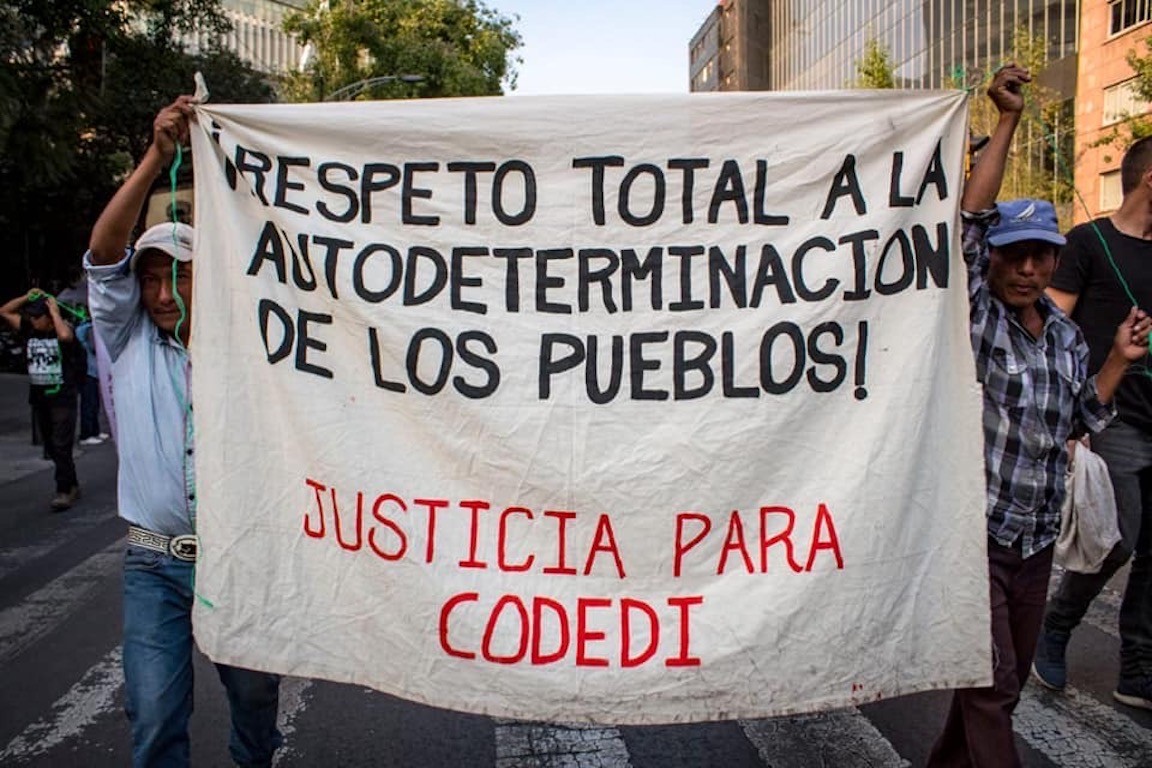
IGD: How has the COVID-19 pandemic affected life in prison?
The pandemic inside prison is very difficult. This prison was never prepared to face a pandemic of this magnitude. There have always been many deficiencies. Medical access is very limited. There are just three doctors for a very large population. Here, there are prisoners from the prisons they closed in Pochutla, Juchitán and Matías Romero. Now recently, they closed the prison in Ixcotel. All of those prisoners have been transferred here. Also, all new prisoners are being brought here to this prison. It is very overcrowded. When people are sick, or people have been infected by this COVID-19 pandemic, many people have died from lack of medical attention and medicine. It has been very difficult for us. Many times, when there is someone sick, they schedule an appointment with the doctor. Sometimes it takes five or six days to actually see the doctor. Many of these people are elderly, who need adequate medical attention. In reality, there are no security protocols in the face of the pandemic. It is very difficult to face this type of pandemic from inside prison.
The pandemic has also affected the temporalities of the judicial processes, lengthening them a lot. There have been months without having an answer, without having a hearing. There are compañeros who have gone a year without having a hearing. In my case, I’ve been in prison for two years and they still haven’t given me an oral hearing. Thus, regarding legal processes, things have been delayed a lot. They always blame the pandemic. In fact, they suspended the courts for six months. There were six months when they were totally closed. There are many prisoners who for months have not had the investigation stage of their legal processes closed. It has affected the judicial processes a lot. Many times, they already have hearings scheduled, but the prisoners aren’t taken to their hearings because of the pretext of the pandemic, because there are people infected, because they can’t be taken to their hearing for security reasons. Like that, they cancel the hearing, they schedule it again, we fall into red alert, and they cancel it again because the conditions aren’t there. This has extended the processes of each one of the compañeros for too much, too much time.
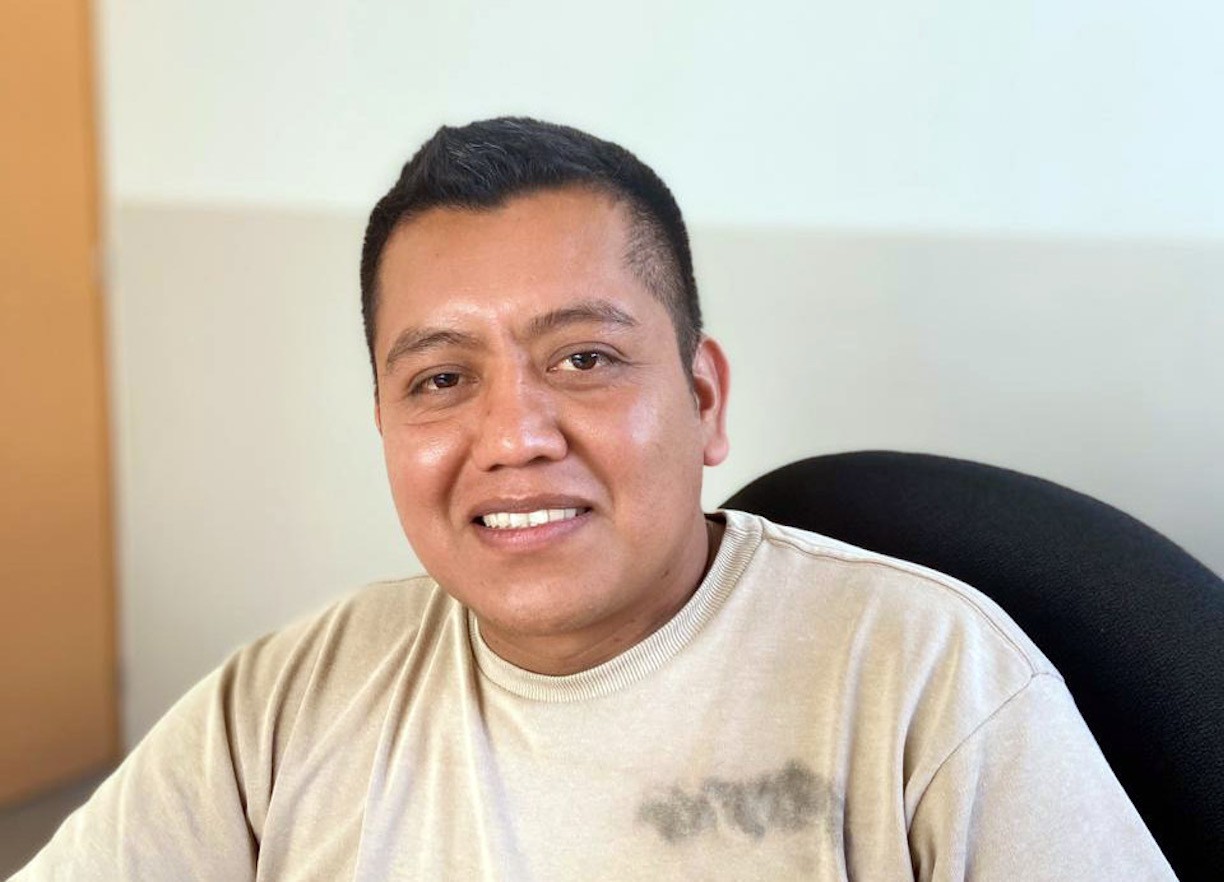
IGD: What organizational efforts have you participated in from inside prison? What does resistance look like inside prison?
It has been very bad. It is a prison where they want to subdue and control all of us, with very strict rules. However, due to the different activities that we have carried out inside the prison, many things have changed. However, they continue violating our rights. For example, here, they don’t care if they violate prisoners’ rights. Just because we are denied our freedom doesn’t mean that we can be denied our rights. We have all of our rights intact inside prison. This is a prison where they are constantly violating our rights. There are many people who have been tortured and beaten by the authorities of this prison. Nobody does anything. The state talks of wanting to apply justice, but inside prison they commit too many injustices against the prisoners. We have always denounced this. We have protested inside this prison so that they respect our rights. Bad or good, once we are in prison, we are complying with their law, but they do not comply with what really falls on them. Furthermore, the guards, they have never been trained properly.
Since arriving to this prison, and taking account of many bad things, including the violation of the rights of the prisoners, I began to organize hunger strikes with some compañeros to demand better conditions of life inside prison. I have been threatened on various occasions, including when I arrived here, I was tortured by the guards. I have been threatened many times, to get to me to stop what I was doing, to stop organizing the compañeros, to stop spreading the word about the conditions inside the prison.
On July 10, I was against beaten during a raid, when they brought federal and state forces into the prison. I was beaten and tortured. This has been very difficult for me and for the other compañeros.
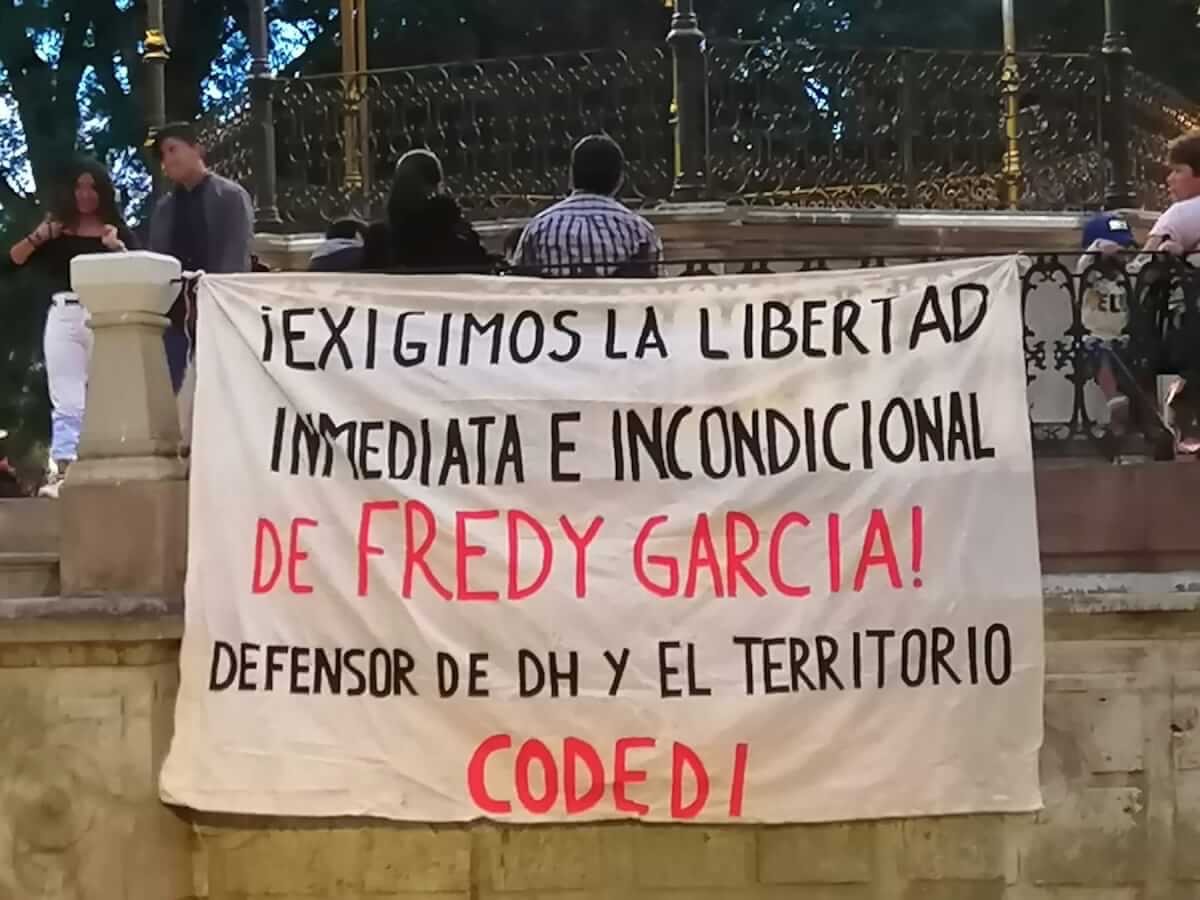
IGD: Anti-carceral struggles and prisoner solidarity are often marginalized within social struggles in Mexico. What relation do you see between anti-carceral struggles, prisoner solidarity, and other struggles for Indigenous autonomy, territorial defense, etc.?
Our enemy has always been the state, for the ways in which they have attacked us. For us, for me, it has always been our enemy. We have always struggled, both in the anti-carceral struggle and the struggle of Indigenous peoples, fighting for our rights as people. I think that is what links us. The goal is to unite, to organize ourselves and fight together, inside and outside the prison, to achieve our objectives, and to confront this capitalist monster.
IGD: What practical things can individuals, collectives, or organizations do to support the struggle for your freedom and the struggle of the organization CODEDI?
What you can do is spread the word about what is happening inside the prison, about the harassment, the attacks against our organization, so that people might support us. What we are asking is that we organize into a united front, that you all support us in applying pressure in order to speed things up so as to clarify the legal situation and truly achieve my freedom.

IGD: Lastly, any message, call out, or invitation that you want to make to the public who listen to independent media and community radio?
I want to recognize the work of the independent and community media. As an organization, we had a gathering of independent and community media in April 2018, when the community radio was founded that now exists inside the Centro de Capacitación CODEDI, called Radio Machete. It is the independent media which have always spoken the truth about what is happening in the communities, about the abuses the people have received from the capitalist government. It is the independent media who are not manipulated. I send them the message to continue working, to continue organizing, to continue spreading the reality of what is happening in each one of the corners of our communities. So that we organize ourselves and form a unified front.
IGD: Perfect. Thanks, compa.
Likewise, compa. Thanks for the space and the interview. We look forward to hearing from you all.

by It's Going Down via It's Going Down
No comments:
Post a Comment